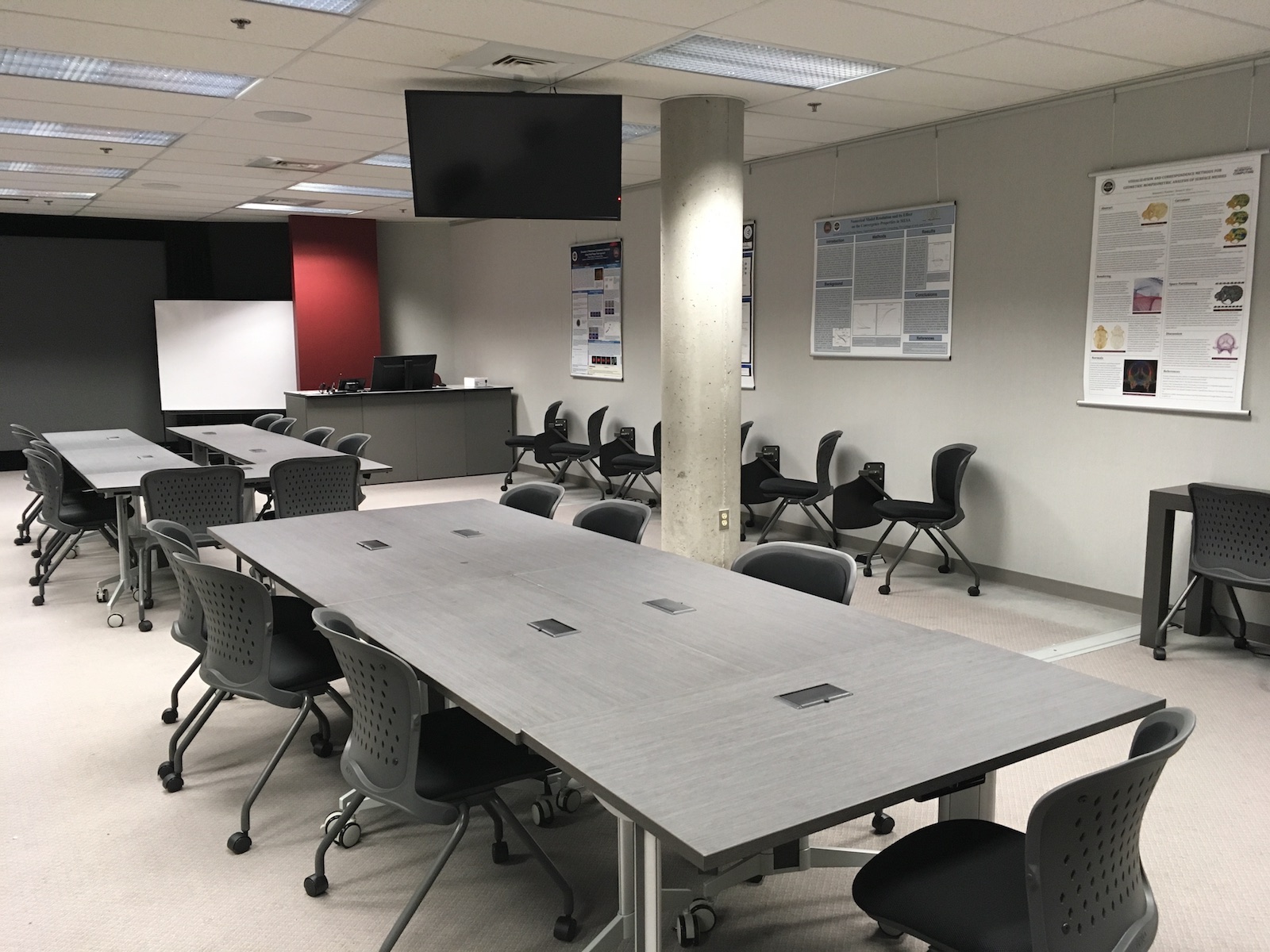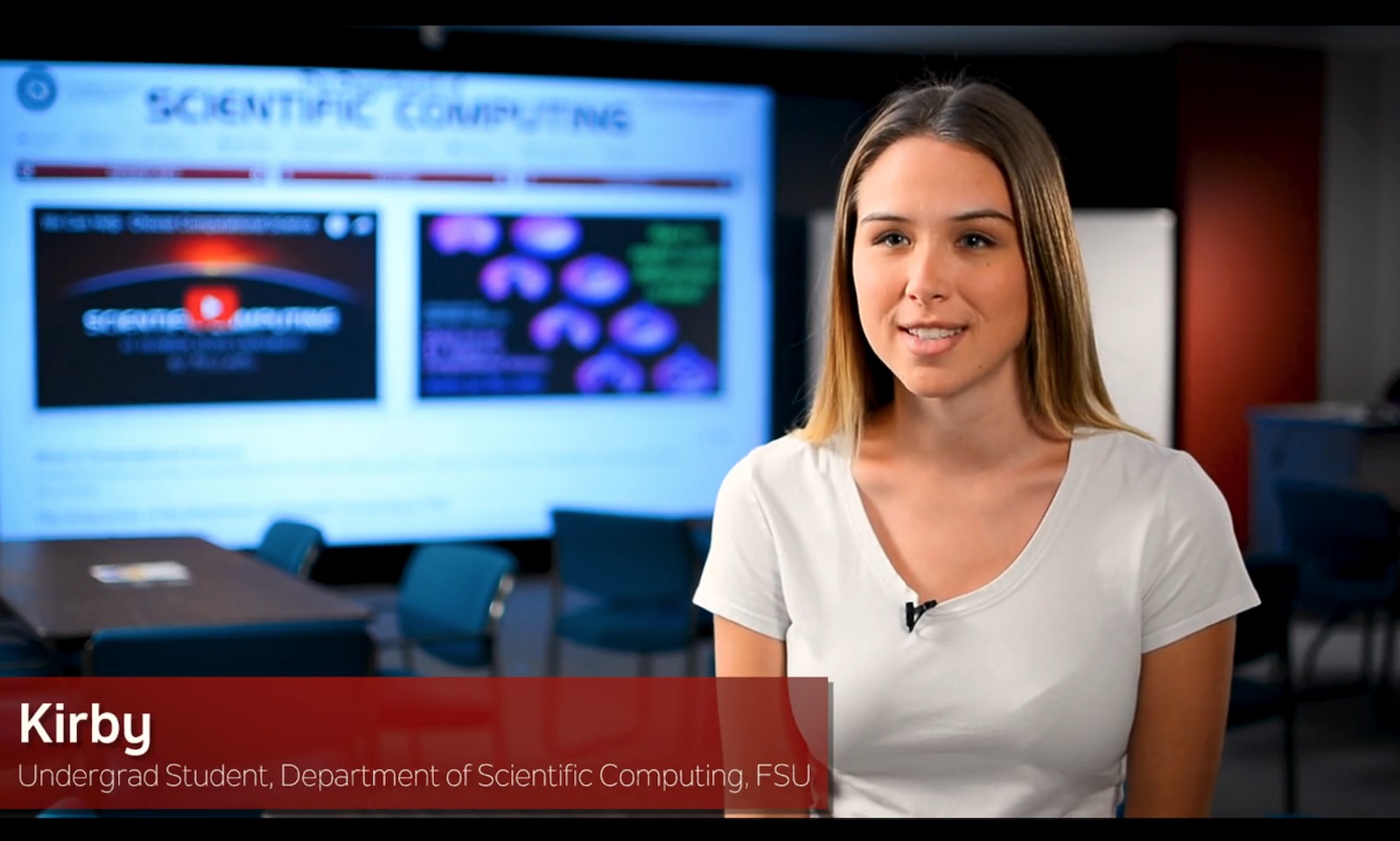Headlines
Contact DSC Public Relations
The department’s seminar room (499 DSL) received an extensive equipment and technology upgrade in 2017, with the last phase of the renovation completed in early January 2018. The new upgrades include an advanced viswall system, an Epson laser projector, and two NEC monitors for clear viewing throughout the room. All those who use room 499 to give presentations on the viswall will be able to use the wireless AirMedia AM-101 presentation gateway. With AirMedia, faculty, staff, & students (connected to FSUSecure) can wirelessly present content via their laptop or mobile device. Our seminar room now offers a wider array of input connections, making presentations universal, fast, and easy.
- Details
Kirby Birch, a December 2017 Computational Science graduate, is set to begin a new job with St. Jude Children’s Research Hospital in Memphis, TN. Birch plans to move to Tennessee this month, and will begin her new position as Bioinformatic Cloud Portal Administrator at St. Jude on January 2, 2018.
- Details
Scientific Computing doctoral student Chad Sockwell was recently featured in a news story on WCTV discussing how a newly proposed tax bill could impact graduate students. The bill proposes the tax exemption for qualified tuition waivers be eliminated. If the bill is adopted, students who receive tuition waivers would have the amount of the waiver taxed as income.
- Details
The Gunzburger Lab was awarded the best poster prize at the Accelerated Climate Modeling for Energy meeting. The lab’s research poster is entitled Exponential time differencing for large time stepping and localized approach for parallel implementation.
- Details
Gabriel Dominguez, Ernesto Rendon, and Rachel Scarboro are the three recipients of the Department of Scientific Computing’s first scholarship award. The prize was created in 2016 to promote excellence in the field of Computational Science. High school seniors and college freshmen, sophomores and juniors were eligible to apply.
- Details



